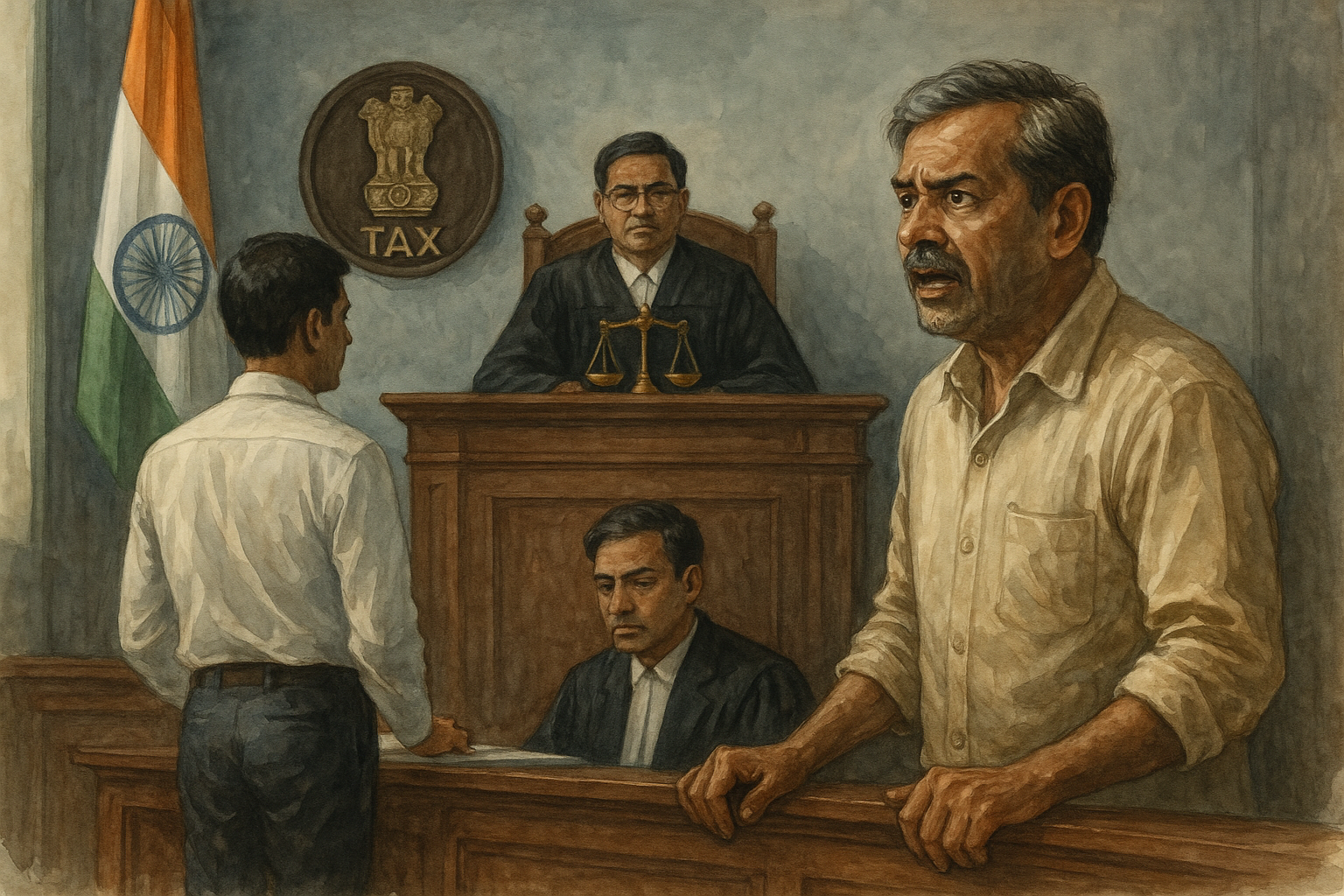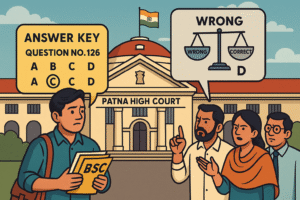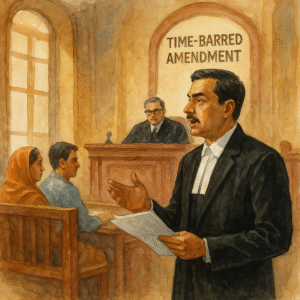Simplified Explanation of the Judgment
In a recent judgment, the Patna High Court dismissed a writ petition challenging the legality of a search and seizure operation conducted under Section 132 of the Income Tax Act, 1961. The petitioner had alleged that the Income Tax Department’s action of issuing a warrant and conducting a search on his premises was unlawful, arbitrary, and violated his rights.
The case arose from a warrant of authorization issued on 27 October 2008, which led to a search operation at the petitioner’s residence and bank locker on 7 November 2008. Cash, jewellery, and documents indicating unaccounted transactions were seized. The petitioner contended that he had resigned from the company allegedly involved in tax evasion four years prior and had no connection with its activities.
However, the Revenue Department countered that the petitioner was still listed as a director in official records at the time of the search and was associated with a network of companies under investigation for large-scale tax evasion and accepting cash payments from customers. The authorities had prepared a “satisfaction note” justifying the search based on concrete information and alleged connections.
The Court examined whether it could intervene in the decision to authorize a search and seizure. It referred to several landmark Supreme Court judgments, emphasizing that courts under writ jurisdiction (Article 226) can only assess the relevance—not the sufficiency or adequacy—of reasons recorded by the tax authorities.
The Court reiterated that under Section 132, tax authorities must have “reason to believe” based on tangible information that a person is concealing income or assets. If challenged, the authorities must demonstrate that they applied their mind honestly and recorded such reasons. Courts are not meant to substitute their own opinion in such cases.
In this instance, the High Court found that the Revenue had recorded adequate and relevant reasons. The petitioner’s resignation and dissociation from the company were factual disputes best left to adjudicatory proceedings before the appropriate tax forums. The Court emphasized that the scope of its jurisdiction was limited to ensuring that the procedure was followed lawfully, and not to decide on questions of fact or innocence.
Therefore, the High Court upheld the legality of the search and seizure operation and dismissed the writ petition.
Significance or Implication of the Judgment
This judgment reinforces the principle that the Income Tax Department can lawfully conduct search and seizure operations when there is sufficient information suggesting tax evasion. It provides legal clarity that the High Court’s writ jurisdiction is not a platform for evaluating the depth or sufficiency of such information but merely its legal relevance. For the general public and professionals, this serves as a reminder that statutory procedures, if followed properly, will be upheld even if the person searched later claims dissociation from alleged wrongdoing.
For government agencies, the ruling supports the integrity of investigations based on credible records and official data such as registrar filings. It affirms that the courts will not interfere unless the procedure is patently flawed or malicious.
Legal Issue(s) Decided and the Court’s Decision
- Whether the search and seizure operation under Section 132 was illegal or ultra vires:
✅ Held Valid. The Court found the authorization to be based on recorded satisfaction and relevant information. - Whether the High Court can assess the adequacy of reasons in the satisfaction note:
✅ Held No. The Court may examine the relevance but not the sufficiency or authenticity of information. - Whether the petitioner’s claimed resignation invalidated the search:
❌ Held Irrelevant in writ jurisdiction due to conflicting facts; appropriate for adjudication in income tax proceedings.
Judgments Relied Upon or Cited by Court
- ITO v. Seth Bros., (1969) 2 SCC 324
- Pooran Mal v. Director of Inspection (Investigation), (1974) 1 SCC 345
- Partap Singh v. Director of Enforcement, (1985) 3 SCC 72
- Director General of Income Tax (Investigation) v. Spacewood Furnishers Pvt. Ltd., (2015) 12 SCC 179
- Union of India v. Agarwal Iron Industries, (2014) 15 SCC 215
- Manish Maheshwari v. ACIT, (2007) 3 SCC 794
- K.S. Puttaswamy v. Union of India, (2017) 10 SCC 1
Case Title
Ajay Kumar Singh v. Director General of Investigation, Income Tax & Ors.
Case Number
Civil Writ Jurisdiction Case No. 3792 of 2009
Citation(s)– 2021(1) PLJR 415 2021 PLJR 1 4152020 SCC ONLINE PAT 24922021 BLJ 1 3402021 ITR 434 3522021 CTR 320 858
Coram and Names of Judges
Hon’ble The Chief Justice Sanjay Karol
Hon’ble Mr. Justice S. Kumar
Names of Advocates and who they appeared for
Mr. Krishna Mohan Mishra, Advocate — for the Petitioner
Mrs. Archana Sinha, Advocate — for the Respondents
Link to Judgment
MTUjMzc5MiMyMDA5IzEjTg==-FIozaeZPtMI=
If you found this explanation helpful and wish to stay informed about how legal developments may affect your rights in Bihar, you may consider following Samvida Law Associates for more updates.








